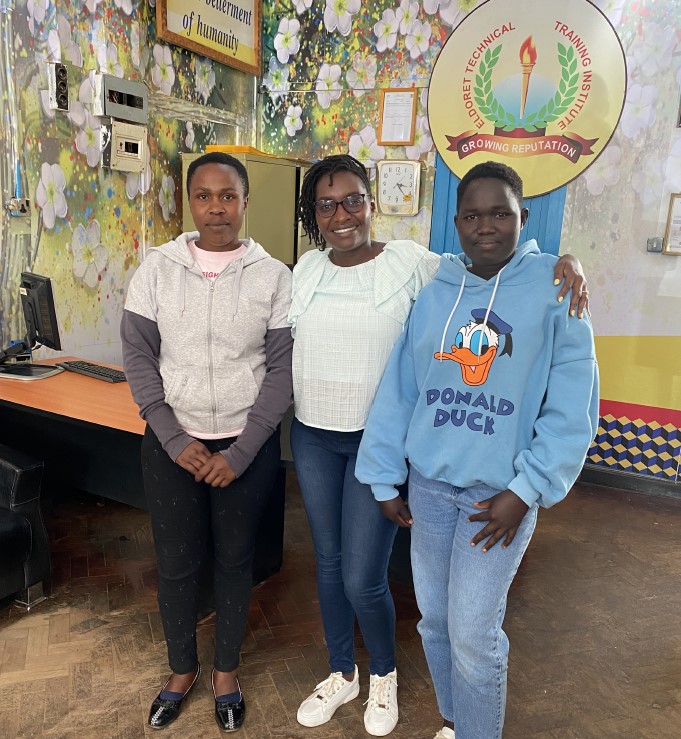The future is bright for Debora Jelangat from Kericho County and Celestine Chelagat. They are currently taking a one year certificate course in refrigeration and Air conditions at the Eldoret technical training Institute (ETTI) sponsored by GIZ Green Cooling Initiative III to pursue their dreams of becoming RAC technicians. The scholarship plays a pivotal role in lifting a significant burden, enabling children to focus on their studies rather than being preoccupied with the financial challenges they face at home.
"I am honored and humbled by the efforts of GIZ sponsoring my vocational college Education and will always do my best to use my skills wisely and help the cooling industry", Debora Jelangat
Women currently make up only a small proportion of the total workforce in the Refrigeration and Air Conditioning (RAC) Sector. The scholarship aims to change that. The measure is supported by the Ministry of Environment Climate Change and Forestry and also in line with ETTI scholarship programmes. It also contribute to achieving gender equality and empowering women and girls in the RAC sector, paying towards SDG Goal #5 Gender Equality.
"I would like to encourage ladies to take up courses like refrigeration and gain skills. Yes, it is technical but fulfilling.” Celestine Chelagat
The origin of the Green Cooling Initiative scholarship emerged from feedback received in the past two years during girls day for female RAC technicians. On these occasions it was noted that there are only few trained female techninicans across the country and this low number starts from intake into TVET institutions. The female RAC technicians noted that there is a number of ladies who whish to join RAC cources after completion of highschool but who lack the financial capacity to enroll into the course. Therefore, GCI III established the scholarship programme to support girls and young women interested in technical occupations but lacking sufficient finances. ETTI has relevant experience in capacity building in the cooling sector covering green cooling technologies. The curriculum in the institute is updated to cover trainings on safe handling of natural refrigerants including propane gas such as R290 refrigerant.
The global project Green Cooling Initiative III is funded by the German Federal Ministry of Environment, Nature Conservation, Nuclear Safety, and Consumer Protection (BMUV) under the International Climate Initiative (IKI).




